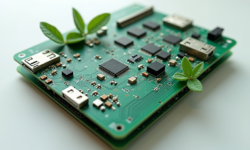Dell Competitor NYT ⏬⏬
In the dynamic landscape of technology, Dell has long been recognized as a prominent player in the computer industry. However, amidst fierce competition and ever-evolving consumer demands, it is crucial to take a closer look at Dell’s competitors to gain a comprehensive understanding of the market. This article delves into an analysis of Dell’s competition, as featured in The New York Times (NYT), shedding light on the challengers vying for a significant share of the industry and the strategies they employ to differentiate themselves in this highly competitive arena.
Dell Competitors
Dell, a renowned technology company, faces strong competition from various prominent players in the industry. Here are some of Dell’s key competitors:
1. HP (Hewlett-Packard)
HP is a leading global provider of personal computers, printers, and related technologies. It offers a wide range of products and services that compete directly with Dell’s offerings.
2. Lenovo
Lenovo is a major player in the PC market and holds a significant market share globally. With its diverse product portfolio and strong presence in both consumer and enterprise markets, Lenovo competes head-on with Dell in various segments.
3. Apple
Apple, known for its innovative design and premium devices, poses a unique challenge to Dell. Although Apple primarily focuses on the consumer market, its high-end products such as MacBook laptops and iMac desktops often overlap with Dell’s offerings.
4. Acer
Acer is another competitor in the PC market, offering a range of laptops, desktops, and peripherals. While Acer targets budget-conscious consumers, it also competes with Dell in the mid-range segment.
5. Asus
Asus is a well-established brand known for its quality computer hardware and electronic devices. With its extensive product lineup, including laptops, desktops, and gaming-oriented machines, Asus competes with Dell in multiple market segments.
6. Microsoft
Microsoft, primarily a software company, has expanded into the hardware market with its Surface line of products. The Surface devices, which include laptops, tablets, and 2-in-1 convertibles, directly compete with Dell’s offerings, especially in the premium segment.
These are just a few notable competitors in the market that challenge Dell’s position. The competitive landscape is dynamic, and other companies may also emerge as competitors in the future as the technology industry continues to evolve.
Top Dell Competitors
| Company | Description |
|---|---|
| HP Inc. | HP Inc. is one of the leading competitors of Dell in the computer hardware industry. It offers a wide range of products, including personal computers, printers, and related accessories. |
| Lenovo | Lenovo is a global technology company that competes with Dell in various segments, such as laptops, desktops, and servers. It is known for its innovative designs and reliable products. |
| Apple | Apple is a major competitor of Dell, particularly in the high-end consumer market. The company is renowned for its premium quality and cutting-edge products, including Mac computers and MacBook laptops. |
| ASUS | ASUS is a prominent player in the computer hardware industry and competes with Dell in areas like laptops, desktops, and gaming devices. It is recognized for its performance-oriented products and gaming-focused offerings. |
| Acer | Acer is a well-established brand that competes with Dell in various product categories, including laptops, desktops, and monitors. It offers a diverse range of devices catering to different customer needs. |
These companies represent some of the top competitors of Dell in the computer hardware market. Each company has its own strengths and unique selling points, attracting different segments of customers. Dell faces fierce competition in the industry, which drives innovation and ensures a wide range of options for consumers.
Dell vs Competitors
Dell is a well-established company that competes with several major players in the computer technology industry. Despite facing fierce competition, Dell has managed to maintain its position as one of the leading computer manufacturers globally.
One of Dell’s main competitors is HP (Hewlett-Packard), another renowned name in the industry. Both companies offer a wide range of products, including laptops, desktops, and servers. They compete not only in terms of product offerings but also in areas such as pricing, customer service, and innovation.
Another significant competitor for Dell is Lenovo, a Chinese multinational technology company. Lenovo has gained considerable market share in recent years, especially in the PC segment. It has become known for its reliable and high-performance devices, challenging Dell’s position in the market.
Apple is also a notable competitor in certain segments, particularly in the premium laptop and desktop market. Apple’s emphasis on design, user experience, and integration across its ecosystem sets it apart from Dell and appeals to a specific customer base.
Despite intense competition, Dell differentiates itself by offering customizable solutions tailored to individual customer needs. Their direct sales approach and strong relationships with corporate clients have been instrumental in their success.
Biggest Dell Competitors
| Company | Description |
|---|---|
| HP Inc. | HP Inc., also known as Hewlett-Packard, is one of the major competitors of Dell in the computer hardware industry. It offers a wide range of products, including desktops, laptops, printers, and accessories. |
| Lenovo | Lenovo is a multinational technology company based in China. It competes with Dell in various market segments, particularly in the laptop and desktop computer markets. Lenovo also produces smartphones, tablets, and other electronic devices. |
| Apple Inc. | Apple Inc. is a renowned competitor to Dell, primarily known for its premium quality products. Although Apple focuses more on consumer electronics, its MacBook lineup directly competes with Dell’s laptops. Apple’s brand value and loyal customer base contribute to its strong competition with Dell. |
| Microsoft | Microsoft, a dominant player in the software industry, also competes with Dell through its line of Surface devices. These Windows-based tablets and laptops provide an alternative to Dell’s offerings, particularly in the business and productivity markets. |
| ASUS | ASUS is a Taiwanese company that competes with Dell in the computer hardware sector. It manufactures a diverse range of products, including laptops, desktops, motherboards, and graphics cards. ASUS has gained recognition for its gaming-oriented hardware, giving it an edge in that market segment. |
These companies are among the biggest competitors of Dell. Each one offers its own strengths and unique product offerings, contributing to a competitive landscape in the computer hardware industry.
Dell’s Major Competitors
| Company | Description |
|---|---|
| HP Inc. | HP Inc. is a prominent competitor of Dell in the computer hardware industry. It offers a wide range of products, including personal computers, printers, and related accessories. HP Inc. has a global presence and competes with Dell across various market segments. |
| Lenovo | Lenovo is another significant player in the computer hardware sector, posing strong competition to Dell. The company manufactures and sells PCs, laptops, tablets, servers, and other electronic devices. Lenovo’s diverse product portfolio allows it to compete with Dell in multiple markets worldwide. |
| Apple Inc. | While primarily known for its consumer electronics, Apple Inc. also competes with Dell in the personal computer space. Apple’s Mac computers, including desktops and laptops, target a specific segment of users who value design aesthetics and the macOS operating system. Dell and Apple often vie for customers seeking high-quality computing devices. |
| ASUS | ASUS is a renowned multinational company that manufactures hardware and electronics, including laptops, desktops, smartphones, and components. It competes with Dell by offering a diverse range of products at various price points, catering to different customer preferences and needs. |
| Acer | Acer is a well-known brand in the computer industry, specializing in the production of PCs, laptops, monitors, and other peripheral devices. Acer competes with Dell by providing affordable yet feature-rich products, targeting budget-conscious consumers and specific market segments. |
Dell’s Main Competitors
Dell, a renowned multinational technology company, operates in a highly competitive industry with several prominent competitors. Here are some of Dell’s main competitors:
- HP (Hewlett-Packard): HP is one of the leading competitors of Dell in the computer hardware and services market. It offers a wide range of products, including desktops, laptops, printers, and enterprise solutions.
- Lenovo: Lenovo is a major player in the global PC market and poses significant competition to Dell. Known for its high-quality laptops, desktops, tablets, and workstations, Lenovo has a strong presence worldwide.
- Apple: Although primarily known for its Mac computers, Apple competes with Dell in various product categories like laptops, tablets, and mobile devices. Apple’s emphasis on innovation, design, and user experience sets it apart from other competitors.
- ASUS: ASUS is a leading manufacturer of computer hardware and consumer electronics, offering a diverse range of products, including laptops, desktops, motherboards, and gaming devices. It competes with Dell particularly in the consumer and gaming segments.
- Acer: Acer is another key competitor of Dell, specializing in laptops, desktops, monitors, and other computer peripherals. It targets both consumer and business markets, providing competitive offerings at different price points.
These are just a few of the notable competitors that Dell faces in the technology industry. The market dynamics and competition continue to evolve as companies strive to innovate and capture customers’ attention through their products and services.
Dell’s Key Competitors
Dell Technologies, a renowned multinational technology company, faces strong competition in various sectors of the industry. While Dell has built a solid reputation for its reliable and innovative products, it operates in a highly competitive market where several key competitors vie for market share and customer loyalty.
1. HP Inc.
HP Inc., formerly known as Hewlett-Packard, is one of Dell’s primary competitors in the computer hardware industry. This company offers a wide range of desktops, laptops, printers, and related accessories. HP Inc. has established a global presence and is known for its focus on quality and reliability.
2. Lenovo Group Ltd.
Lenovo is another significant competitor for Dell, particularly in the PC and laptop market. As a Chinese multinational technology company, Lenovo has gained considerable market share by offering a diverse portfolio of products, including laptops, tablets, smartphones, and data center solutions.
3. Apple Inc.
While Dell primarily focuses on business customers, Apple Inc. is a formidable competitor in the consumer electronics sector. Known for its stylish and innovative designs, Apple offers a range of products such as Mac computers, iPhones, iPads, and various other peripherals. The company has a dedicated customer base that values Apple’s brand identity and ecosystem.
4. Acer Inc.
Acer is a Taiwanese multinational hardware and electronics corporation that competes with Dell, particularly in the consumer market. Acer provides a broad selection of laptops, desktops, monitors, and gaming devices at competitive price points. The company emphasizes affordability while still offering decent performance and features.
5. AsusTek Computer Inc.
AsusTek Computer, commonly known as Asus, is another key competitor for Dell. Asus focuses on manufacturing a wide range of products, including laptops, desktops, smartphones, and computer components. The company is known for its gaming laptops and high-performance hardware.
These are just a few of the notable competitors that challenge Dell in various segments of the technology market. While Dell has established its position as a leading provider of computers and enterprise solutions, it continuously adapts to the competitive landscape to ensure customer satisfaction and maintain its market presence.
Dell’s Top Competitors
| Company | Description |
|---|---|
| HP Inc. | HP Inc. is a renowned technology company that offers a wide range of personal computers, printers, and related products. It competes directly with Dell in the PC market. |
| Lenovo | Lenovo is a global technology company known for its diverse portfolio of devices, including PCs, tablets, smartphones, and servers. It is a strong competitor to Dell, particularly in the enterprise computing space. |
| Apple Inc. | Apple Inc., famous for its premium hardware and software offerings, is a significant player in the computer industry. Although primarily focused on consumer electronics, Apple’s Mac lineup competes with Dell’s computers. |
| ASUS | ASUS is a leading manufacturer of computer hardware and electronics, producing a variety of products such as laptops, desktops, and components. It competes with Dell across different segments of the PC market. |
| Acer | Acer is a well-known brand that specializes in the production of computers, monitors, and other IT equipment. It competes with Dell, particularly in the consumer and small business markets. |
Dell Direct Competitors
Dell is a renowned multinational technology company that specializes in the development, production, and sale of computers, laptops, servers, and related products. While Dell has established its presence in the market, it faces competition from several direct competitors who offer similar products and services. Let’s take a look at some of Dell’s primary direct competitors:
| Company | Main Product/Service |
|---|---|
| HP Inc. | Computers, laptops, printers, peripherals |
| Lenovo | Personal computers, laptops, tablets, smartphones |
| Apple Inc. | Mac computers, MacBook laptops, iPhones, iPads |
| Acer | Computers, laptops, monitors, projectors |
| Asus | Personal computers, laptops, smartphones, components |
In addition to these competitors, there are other companies such as Toshiba, Sony, Samsung, and Microsoft that also compete with Dell in specific product categories or regions.
Understanding the competitive landscape is crucial for Dell to identify market trends, innovate their products, and provide unique value propositions to stay ahead in the ever-evolving technology industry.
This brief overview provides insights into Dell’s direct competitors and highlights the diverse range of companies competing in the same market segment.
Dell Rivals
Dell, a prominent technology company, faces strong competition from various rivals in the market. These competitors strive to offer similar products and services, targeting similar customer segments. Understanding Dell’s rivals is crucial for gaining insights into the competitive landscape of the industry.
Main Rivals:
- HP (Hewlett-Packard): Known for its extensive range of computer hardware and software solutions, HP competes directly with Dell in the personal computer and server markets.
- Lenovo: A global leader in the PC industry, Lenovo poses a significant threat to Dell with its innovative product line-up, including laptops, desktops, and tablets.
- Apple: Although primarily recognized for its consumer electronics, Apple’s Mac computers are popular among professionals and creatives, presenting competition for Dell’s premium offerings.
- ASUS: This Taiwanese multinational company specializes in manufacturing a diverse range of computer hardware, including laptops and components. ASUS competes with Dell in multiple product categories.
- Acer: As a leading manufacturer of budget-friendly computers, Acer competes with Dell in the entry-level laptop and desktop segments, providing an alternative choice for price-conscious consumers.
Competitive Factors:
The rivalry between Dell and its competitors revolves around several key factors:
- Product Innovation: Competitors constantly introduce new features, designs, and technologies to attract customers and gain a competitive edge.
- Pricing Strategy: Price plays a significant role in consumer purchasing decisions. Competitors often engage in price wars or offer promotional deals to win market share.
- Brand Reputation: Established brands like HP, Lenovo, and Apple enjoy strong reputations, which can influence customer preferences and brand loyalty.
- Customer Support: Providing excellent after-sales service, technical support, and warranty options are critical factors that impact customer satisfaction and brand perception.
- Market Presence: Rivals may have an advantage in specific geographic regions or customer segments due to their established distribution networks and market penetration strategies.



